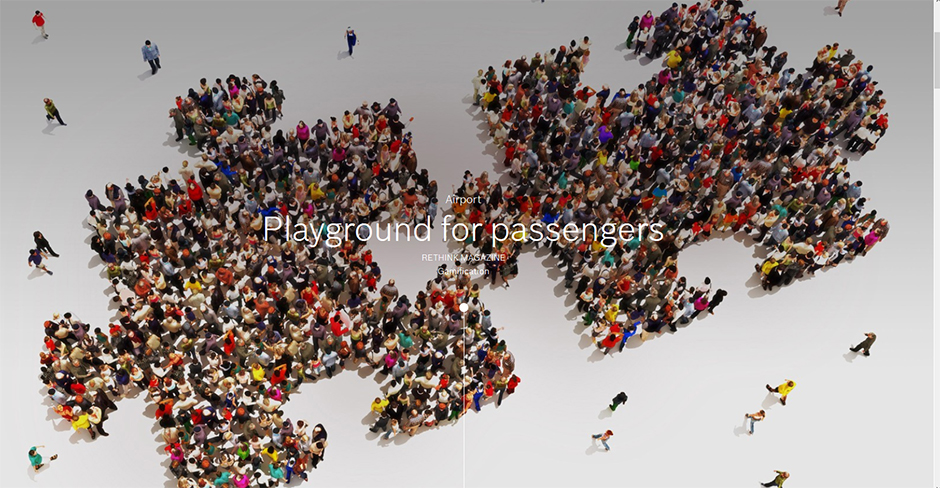Playground for passengers
Nobody likes to take the stairs when he or she can lazily stand on the escalator or take the elevator. For this reason, subway stairs in Stockholm were remodelled into a piano keyboard. When going up, sounds are made as if one would play the piano with his or her own feet. Similarly, small game instructions are painted on the streets of London: pedestrians are asked to discover certain tree species and playfully tackle the subject of the endangered nature within the city.

Global trend
Gamification is a global trend. It is about placing positive and pleasant incentives to encourage people towards a desired behaviour, for instance, to take more exercise. Even if this sounds rather adventurous in the first place: experts believe that gamification can be used at airports to control streams of people and prevent large crowds. In fact, people are already playing at the airport – for instance, the popular game Pokémon in which one hunts virtual monsters on the smart-phone. Frankfurt Airport has not prohibited this game on its premises. In contrast, the airport provides the gamers with useful hints on the website, establishes rules, asks the gamers to take care and show consideration, and has made positive experiences with it. Why should not every guest be given a playful task?

Gamification has a threefold benefit
Exploration games are particularly well suited for this purpose. For instance, the ‘Tiny Games’ developed by the London based agency Hide&Seek: sticker, of the size and shape of a utility hole cover imprinted on the ground, describe simple rules of play. People are occupied by finding and taking pictures of certain wall patterns, or by looking for five aeroplanes of different colours and noting down the model number. If the results are displayed on an info screen in the terminal in the form of high scores, a winner can be announced in frequent intervals what adds a competitive appeal to the game. It would also be possible to send close-ups of certain objects at the airport to the displays of the gamers which they then have to find in the terminal. These few examples should show that gamification can be an interesting approach and has, at least, a threefold benefit. It allows to advertise a certain area or the whole airport,helps the guests to pass the time, and, if intelligently used, it can be applied to make people move into certain directions to prevent large crowds of people. Imagination seems to have no limits. Just one rule needs to be followed: The more fun a game is, the more players are fascinated by it. And the higher is the desired effect of the game.





